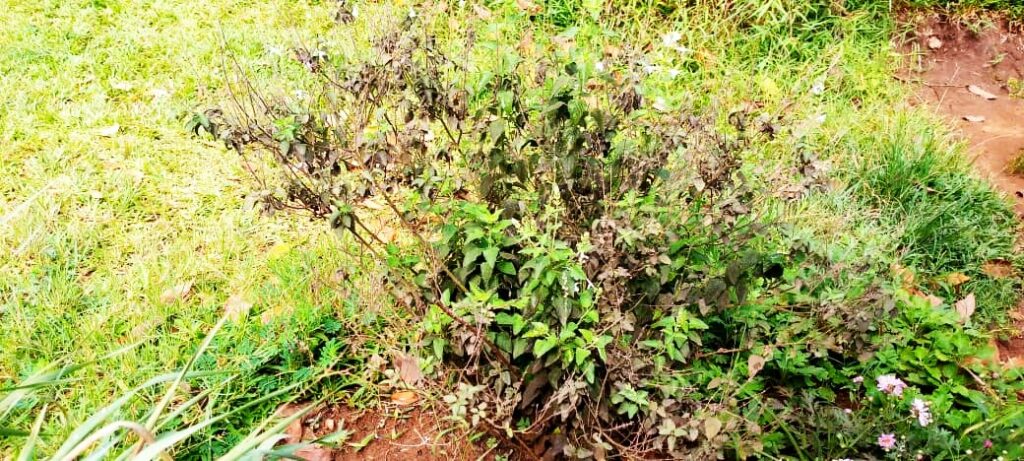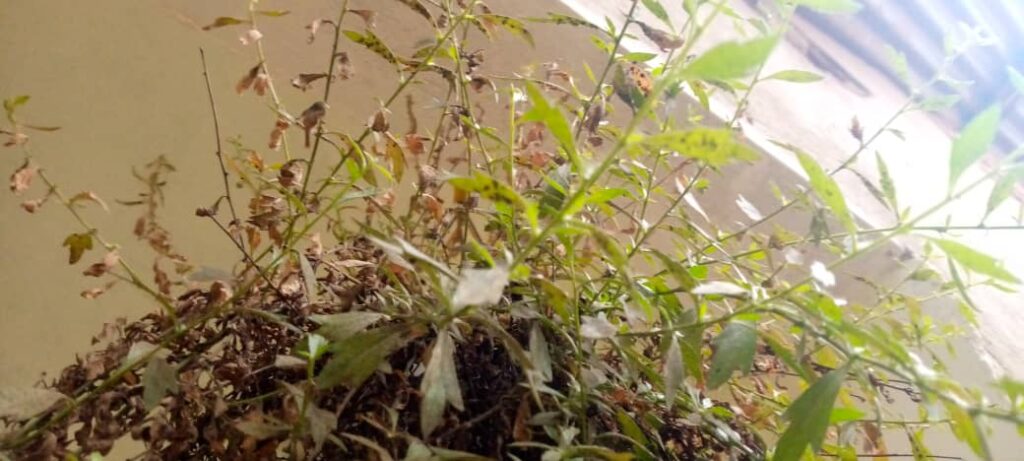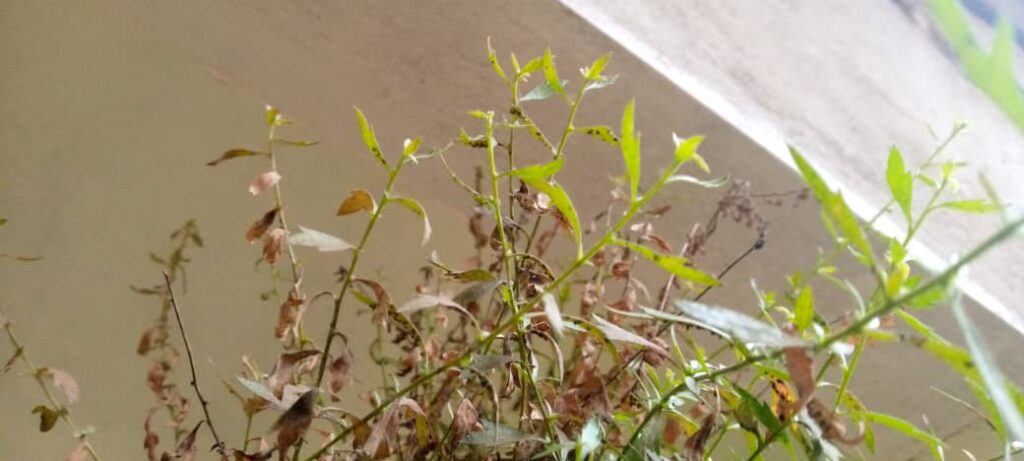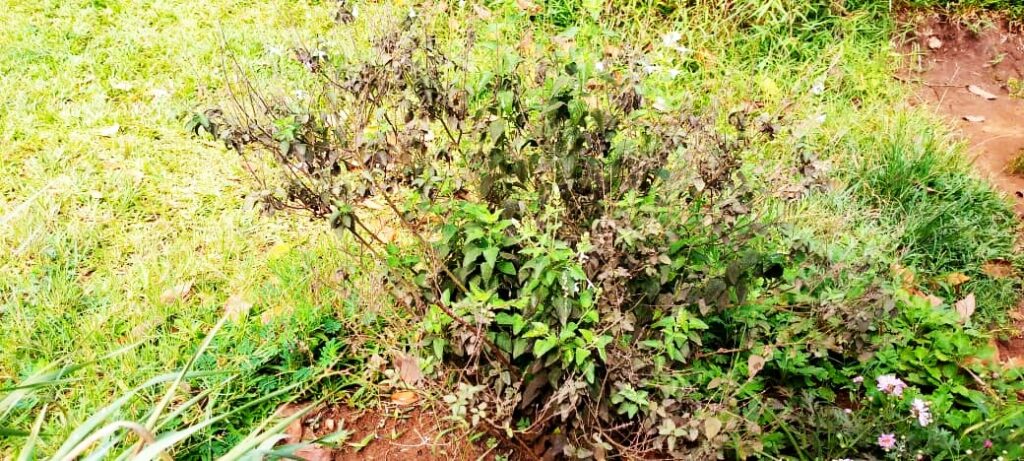By Jovita Mirembe
Growing veggies, micro greens and house plants for sale is one of the booming businesses in Uganda, especially in city centres and suburbs today.
However, some gardeners and farmers say fungal infections have frustrated their business.
Diana Mbabaali, a gardener says fungus like powdery mildew absolutely ruins plants.
“This means a loss to me because I will not get money from it if its affected by a fungus. Here the plant starts showing signs of unusual spotting or has growth on it that is a different color which shows that it has been affected by some kind of fungus,” Mbabaali says.
Lillian Musoke, a vegetable grower, says her plants being affected by fungus is one of the challenges that she gets while growing her vegetables.
Mbabaali and Musoke say they use chemical pesticides to spray their plants which are affected to help their plants come back to life.
However, Henry Galiwango, a lecturer of agricultural sciences at the School of Education, Makerere University says using organic pesticides is the best way to spray your plants with.
He says when a plant’s leaves start blackening, it shows that it has been affected by a fungus.
Galiwango says in another scenario when you see unusual spots on the leaves of your plant, it might indicate a fugus infection.
In this scenario, anti-fungal organic sprays using onions and garlic can be effective and here he recommends how to use them;
Procedure
Step one
.Prepare 85g of garlic which is approximately equivalent to one cluster of garlic, or 100g of onions which are equivalent to 7-10 of medium size onions.
. Remove all the soil and dry the outer leaves so that a fresh leave remain.
. Remove all the roots from the onion or garlic.
Step two
.Put the garlic / onions in the mortar. Alternatively, you can put them in a blender because its faster.
. Start pounding or crushing until all are finely made.
Step three
Soak the crushed material in a half litre of water and cover well for 24 hours or one day.
.Ensure you cover the container or jerrican where the contents are stored to avoid excessive escape of the scent or ordour as this is the active ingredient that repels the pests.
Step four
.Soak 10g of soap which is instance those very pieces of soap that remain when you have finished washing. If you are using a small spraying pump, one spoon of liquid soap is enough and mix it with onions.
.This soap is necessary in ensuring the solution fully dissolves well when mixed in the spraying pump and for efficient fluid flow during spray. This soap also increases the killing or repelling ability of the solution. It is specifically used to suffocate small soft bolded insects and anthropoids such as aphids, mealy bugs, thrips, white flies, spider mites leaf hopper, earwigs and immature scales.
Leave this solution for 24 hours before you use it.
Step five
.Stir and sieve with cloth or strainer to ensure the onion pieces don’t block or clog the pump tubes.
.Transfer the mixture into a hand sprayer or spraying pump.
Step six
.Carefully transfer the mixture into the hand sprayer or spraying pump.
.Make sure the hand sprayer is cleaned with soap and water before use.
Step seven
.Spray onto the vegetable plants.
.Ensure the whole plant is sprayed with the mixture to increase chances of repelling the pests.
.Ensure you spray in the morning or late evening to avoid quick drift of the mixture.
Galiwango says this procedure can also be done to plants whose leaves turn black when it’s not a fungal infection but when the plant is undergoing a stage where the environment has some water retention challenges.
He adds that this comes when at one time it rained and water stayed for long in the soil.









